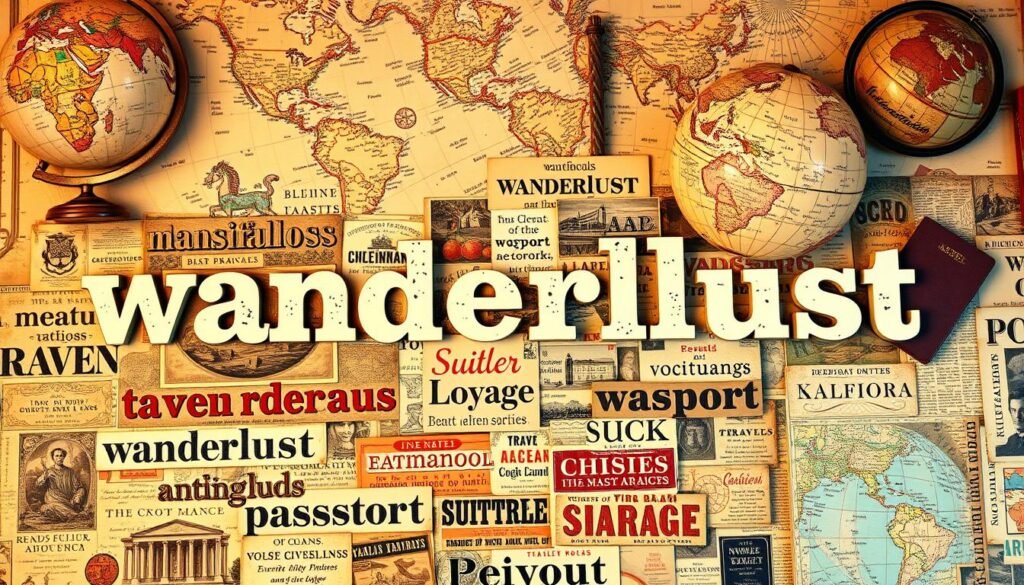Have you ever wondered what to call someone who has an insatiable passion for exploring new places? Look no further! A travel lover is often referred to as a travel enthusiast or wanderer. These terms capture the essence of someone who sees the world as their playground.
Thank you for reading this post, don’t forget to subscribe!Whether it’s backpacking through distant lands or road-tripping across local destinations, the term travel enthusiast encapsulates the spirit of adventure. It’s more than just a hobby; it’s a way of life. For many, the love for travel is driven by a deep curiosity about different cultures, histories, and landscapes.
In today’s world, the travel community has embraced a variety of creative terms to describe this passion. From vagabonds to jetsetters, each word adds a unique flavor to the narrative. These terms not only define a person’s lifestyle but also reflect their values and aspirations.
For instance, travel bloggers and photographers often use terms like wanderlust to describe their constant yearning for new experiences. This modern terminology has become a cornerstone of travel storytelling, making it easier for like-minded individuals to connect and share their journeys.
So, the next time you meet someone with a passion for exploration, you’ll know exactly what to call them. Whether it’s a casual conversation or a deep discussion, these terms will help you resonate with fellow travel enthusiasts.
Key Takeaways
- A travel lover can be called a travel enthusiast or wanderer.
- Travel enthusiasts often have a deep curiosity about different cultures and histories.
- Creative terms like vagabond and jetsetter add unique flavors to travel narratives.
- Modern terminology helps connect like-minded individuals in the travel community.
- These terms reflect more than just a hobby; they represent a lifestyle and values.
Understanding What Is a Travel Lover Called
Exploring the world sparks curiosity about the terms that describe those who embrace this lifestyle. A travel lover is someone driven by a deep passion for discovery and cultural immersion. This term captures the essence of adventure, curiosity, and the joy of connecting with new environments.
The meaning behind travel-related words is shaped by language and context. For instance, the term “hodophile” specifically refers to someone who loves travel, while “nomad” describes a lifestyle of constant movement. These examples illustrate how terms evolve to reflect different aspects of travel, from leisure to adventure.
Travel language is rich with descriptive terms. “Solivagant” describes solo travelers, while “gallivant” captures carefree journeys. These examples show how words convey the nuances of travel experiences, making them more relatable and vivid.
Over time, travel terms have become more diverse, reflecting changing attitudes and trends. From “vagabond” to “jetsetter,” these terms highlight the varied ways people engage with travel, making the travel community’s dialogue more dynamic and expressive.
Diverse Titles for the Globe-Trotting Traveler
The world of travel offers a wide array of terms to describe passionate explorers. Whether you’re an adventure seeker, a journey lover, or an explorer, each title carries its own unique charm and reflects different aspects of the travel experience.
Adventure Seeker, Journey Lover, and More
For those who crave excitement, the term adventure seeker fits perfectly. It captures the spirit of someone always on the lookout for thrilling experiences. On the other hand, a journey lover emphasizes the joy of the travel process itself, valuing the journey as much as the destination.
Explorers are driven by curiosity and a desire to uncover the unknown. They often seek out uncharted territories, immersing themselves in new cultures and landscapes. This title is perfect for those who view travel as a way to expand their knowledge and broaden their horizons.
Globetrotter, Road Tripper, and Nomadic Adventurer
A globetrotter is someone who travels extensively across the globe, often visiting multiple countries and experiencing diverse cultures. This term is ideal for those who have a passport full of stamps and a heart full of wanderlust.
For those who prefer shorter, more manageable trips, the term road tripper is fitting. Road trippers often focus on exploring local destinations, enjoying the scenic routes and hidden gems along the way. This title is perfect for individuals who love the freedom of the open road and the spontaneity it brings.
A nomadic adventurer embodies a lifestyle of constant movement. These travelers often have no fixed home and are always on the move, seeking new experiences and challenges. This term is ideal for those who view travel as a way of life, embracing the unknown and living life on their own terms.
Exploring Creative Wanderlust Vocabulary
Discovering new words to describe your travel experiences can elevate your storytelling and connect more deeply with fellow adventurers. Creative vocabulary adds richness to your narratives, making them more engaging and relatable.
English Wanderlust Travel Words and Their Meanings
Terms like serendipity and selcouth paint vivid pictures. Serendipity captures the joy of unexpected discoveries, while selcouth describes extraordinary experiences, perfect for recounting journeys to exotic destinations.
Obscure and Unique Terms to Elevate Your Travel Lingo
Expand your lexicon with words like coddiwomple (traveling without a destination) and resfeber (pre-journey excitement). These terms add unique flavors to your stories, making them memorable and impactful.
Incorporate these words into your blog or social media. For instance, describing a spontaneous Caribbean adventure as a coddiwomple journey or sharing the resfeber before a trip. This enhances your narrative and helps readers visualize your experiences.
Language and Origins of Travel Terms
Uncovering the linguistic roots of travel terminology reveals a rich tapestry of cultural influences. Many terms we use today have evolved from ancient languages, reflecting the diverse ways societies have viewed exploration and movement.
French, Spanish, and German Influences
French and Spanish have gifted us with elegant terms like dépaysement, describing the feeling of being out of one’s country. German contributes wanderlust, a deep desire to explore, and fernweh, a longing for distant places. These words capture the essence of cultural perspectives on travel.
Greek, Latin, and Other International Roots
Greek and Latin have significantly shaped travel vocabulary. Hodophile (love for travel) originates from Greek, while Latin gives us peregrinate, meaning to travel abroad. These terms highlight the enduring impact of classical languages on modern travel expressions.

- Terms like vagabond reflect a carefree, wandering lifestyle.
- Words relating to time and home in various languages offer unique cultural insights.
- Examples include resfeber (pre-journey excitement) and coddiwomple (travelling without a destination).
These linguistic origins enrich our understanding of travel, celebrating the diversity of global experiences and the evolution of language in describing our adventures.
Modern Terms to Describe a Passion for Travel
In today’s digital age, the way we express our passion for travel has evolved, giving rise to fresh and exciting terminology. These modern terms not only reflect our love for exploration but also capture the essence of freedom and the feeling of discovering new horizons.
Travel Enthusiast and Digital Age Terminology
A hodophile is someone who loves travel, a term that has gained popularity in recent years. This word describe a deep passion for exploring the world, often driven by a sense of wanderlust. The feeling of freedom that comes with traveling is perfectly encapsulated in modern terms like “bleisure,” which blends business and leisure travel.
Digital culture has significantly influenced how we express our travel experiences. Through photography, blogging, and social media, travelers share their journeys, creating a sense of community. Terms like “resfeber” capture the excitement and anticipation before a trip, while “coddiwomple” describes traveling without a destination in mind.
These modern words describe the essence of exploration and the feeling of connecting with different cultures. They reflect how travel has become more than just a hobby; it’s a lifestyle that embodies freedom and curiosity. By embracing these terms, travelers can share their experiences more vividly, inspiring others to embark on their own journeys.
How to Incorporate Travel Words in Your Journeys
Using rich travel vocabulary can transform how you share your adventures. It helps paint vivid pictures and connects deeply with fellow explorers. Whether you’re documenting your trips or simply recounting them, the right words can make your stories unforgettable.
Crafting Your Personal Travel Narrative
Start by weaving travel terms into your storytelling. For instance, describe a spontaneous detour as a coddiwomple or the excitement before a trip as resfeber. These words add unique flavors to your tales, making them more engaging and relatable.
Reflect on how each journey shapes your life and broadens your perspective of the world. Use terms that resonate with your inner mind and soul, capturing the essence of your experiences.
Enhancing Your Travel Blog and Social Media Presence
When sharing online, sprinkle travel words naturally into your posts. A blog about a serene hike might use selcouth to describe the extraordinary scenery. On social media, a photo caption could mention wanderlust to express your desire for exploration.
Encourage others to embrace travel terminology. By doing so, you create a community that shares a common language, deepening connections and inspiring future adventures. Remember, the right words can make your stories resonate and leave a lasting impression.
| Travel Term | Meaning | Usage Example |
|---|---|---|
| Coddiwomple | Traveling without a destination | “Our road trip was a delightful coddiwomple through the countryside.” |
| Resfeber | Pre-journey excitement | “I felt strong resfeber before boarding the plane.” |
| Selcouth | Extraordinary experience | “The sunset was truly selcouth, leaving us all in awe.” |

Lists and Collections: Curated Travel Vocabulary
Exploring the world of travel vocabulary can enhance your storytelling and connect you with fellow adventurers. Curated lists of travel words offer a way to precisely describe moods, settings, and activities, making your narratives more vivid and engaging.
Top Words for Wanderers and Explorers
Whether you’re a road tripper or a global rover, having the right words can elevate your travel stories. Here are some top travel terms to enrich your language:
- Rover: Perfect for describing someone who loves exploring new roads and territories.
- Road buff: Ideal for enthusiasts who find joy in the journey, not just the destination.
- Travel buff: A term for those with a deep passion for exploring new places and cultures.
- Adventure friend: A companion who shares your love for exciting activities and experiences.
Using Synonyms to Express Your Travel Experiences
Using synonyms can diversify your language and add depth to your travel stories. For example:
- Instead of “journey,” try “adventure” or “expedition.”
- Replace “trip” with “voyage” or “quest.”
- Use “wander” instead of “walk” for a more poetic feel.
These words can form the backbone of engaging travel content and conversation, helping you convey your experiences more effectively.
Cultivating a rich travel vocabulary allows you to share your adventures with precision and flair, inspiring others to explore the world with fresh eyes.
Conclusion
Exploring the diverse terms for someone who loves adventure reveals a vibrant tapestry of expressions. From globetrotters to nomadic adventurers, each title reflects unique aspects of exploration. Whether someone loves uncovering hidden gems or immersing in cultures, the right words can make their stories unforgettable.
Precise language helps capture the essence of journeys, making them more relatable. Mixing traditional, creative, and modern terms adds depth to narratives. For instance, describing a spontaneous trip as a coddiwomple or the excitement before departure as resfeber brings stories to life.
Encourage experimenting with these words, whether traveling solo or with friends. They articulate experiences in unique ways, connecting with fellow adventurers and inspiring others to explore. Embrace this rich vocabulary to share your adventures with flair and inspiration.

